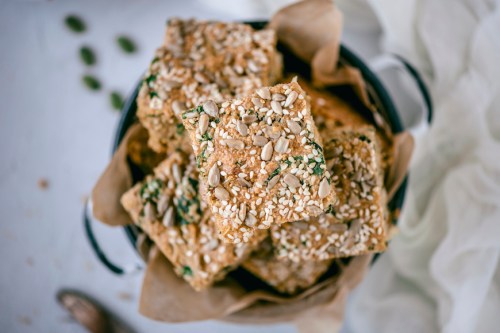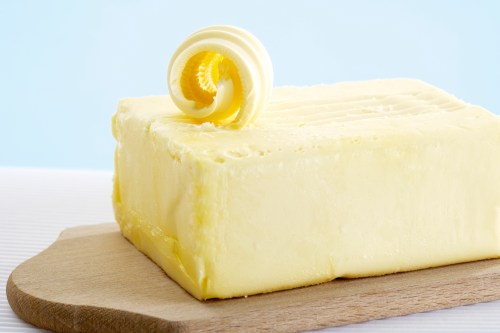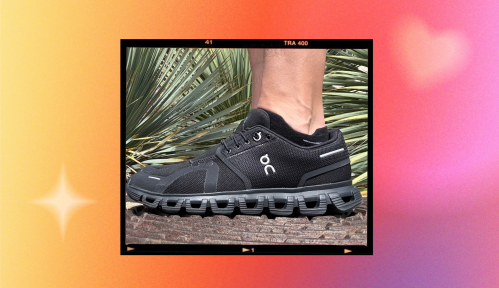The wellness world seems to constantly be on a quest for the next “new” healthy food—often looking beyond U.S. borders to find fruits, grains, and other foods to deem worthy to add to their plates. And while it’s great to be inspired by regions around the world (like, hello Blue Zones), there’s no shortage of cheap, readily-available foods that are full of nutrients right in our own backyards. Sunflower seeds definitely apply here. Primarily sourced from North Dakota, South Dakota, and Minnesota, sunflower seeds are the fruit of the sunflower plant, harvested from the flower heads, and then dried and washed before being repackaged and landing on store shelves across the country.
According to registered dietitian Alana Kessler, RD, these little guys are *full* of benefits. But before we get to the benefits of sunflower seeds, she offers up some helpful tips on how to ensure you’re truly buying the healthiest ones. “First, I recommend buying organic sunflower seeds, if you can, because [they’re] much less likely to have pesticide residue,” she says.
Kessler also says dry roasted sunflower seeds tend to be easier to digest than raw sunflower seeds, so if you have a sensitive stomach, it’s something you may want to pay attention to on the label. “Anything raw tends to be a bit more difficult to digest, including vegetables and seeds, because it requires more [digestive] enzymes to break down,” she says.
Once you get your sunflower seeds home, you can store them in your panty for many months, but Kessler points out that they eventually do expire. “In general, packaged sunflower seeds last about 10 months, but after that they start to lose some of their nutritional benefits and the taste may also change,” she says.
Okay, now that you’re armed with Kessler’s helpful buying tips, here’s why you may want to stock up on sunflower seeds in the first place.
The nutritional benefits of sunflower seeds
1. Sunflower seeds are a good source of healthy fats
Like the beloved avocado, sunflower seeds are rich in healthy fats. “A three-fourths cup serving of sunflower seeds has 14 grams of fat, which are primarily polyunsaturated fat and monounsaturated fat,” Kessler says. Polyunsaturated fats and monounsaturated fats are the “good” fats, linked to cardiovascular health and other health perks.
2. They are a good source or protein
Kessler also says that sunflower seeds are high in protein; one serving has seven grams. While the goal should be to get an average of 75 grams of protein a day, that’s a decent amount considering the size of the seeds—especially since the body can’t absorb more than 30 grams of protein at once. “Sunflower seeds’ protein content is one reason why I regularly recommend them as a healthy snack,” Kessler says, saying that the combination of protein and healthy fats are needed to truly feel satiated.
3. Eating sunflower seeds could benefit your brain
Another reason Kessler recommends sunflower seeds as a power snack is because they’re good for brain health. “This is because they contain vitamin E,” she says. “Vitamin E is a helpful nutrient for combatting brain fog in the short-term and also for protecting against cognitive decline in the long-term.”
4. They’re a good source of magnesium
You might want to stash a bag of sunflower seeds in your gym bag, too. Kessler says they’re a good source of magnesium, which helps a tired body recover from working hard. “Magnesium is an essential nutrient for muscle recovery and especially important to get enough of if you work out a lot,” Kessler says. “It helps keeps muscles working properly.” A half cup of sunflower seeds has 227 milligrams of magnesium, which is more than half of what’s required for the whole day.
5. Eating sunflower seeds can give you more energy
While the protein content in sunflower seeds already makes it an energy-boosting snack, Kessler says there are other nutrients sunflower seeds are high in that help with this too: selenium and iron. “Selenium is a huge nutrient for energy,” Kessler says, adding that it’s not found in too many other foods (other than meat), making it difficult for some healthy eaters to get enough of. The iron in sunflower seeds also help on that front, Kessler explains, because it helps with blood flow, which helps deliver oxygen to your body and thus keeps you feeling energized.
6. Sunflower seeds are good for your immune system
“Sunflower seeds are also a good source of zinc, with seven milligrams per serving,” Kessler says. That’s about what you need for the entire day. “Zinc is directly linked to benefitting the immune system, so it’s an important nutrient you want to make sure to get enough of,” Kessler adds.
Clearly sunflower seeds are a hidden gem, just waiting to be dug out from the back of the pantry. While eating them straight out of the bag is always an option, there are other ways to enjoy them. Keep reading for some creative ideas.
4 ways to consume sunflower seeds—besides eating them straight from the bag
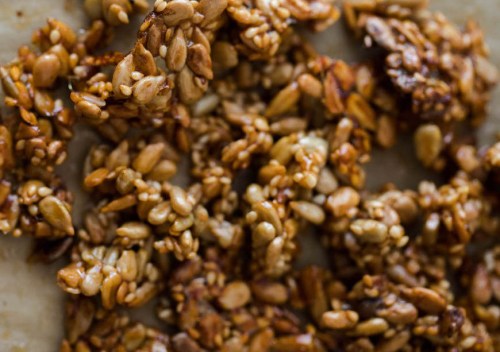
1. SUNFLOWER SEED CRUNCH
One way to enjoy sunflower seeds is by using them to make a crunchy granola, like this recipe shows. Here, they’re mixed with sesame seeds, honey, olive oil, and a pinch of salt. Simple and delicious.
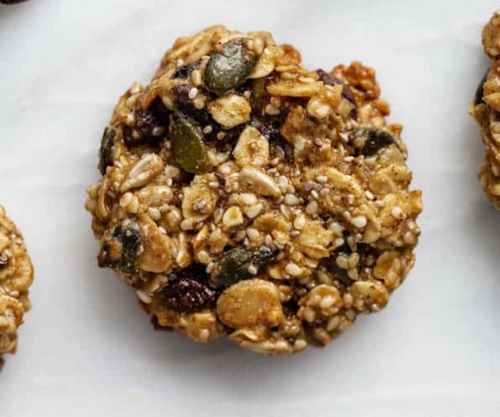
2. COCONUT SUNFLOWER SEED COOKIES
In this recipe, sunflower seeds are worked right into cookie batter for a sweet treat that doubles as a high-protein snack. It also uses almond flour, chia seeds, and pumpkin seeds, which are all good sources of protein, too. They’re so nutritious that they work just as well for breakfast as they do for a snack or dessert.
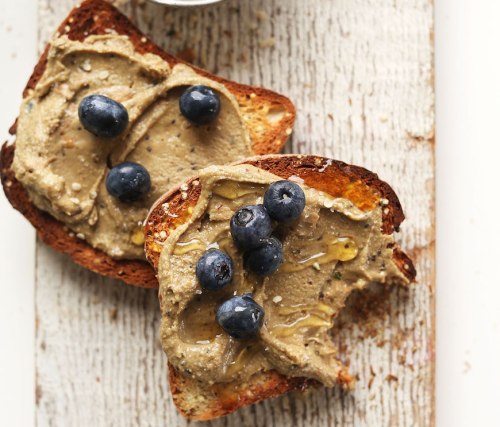
3. SUNFLOWER SEED BUTTER
You can use sunflower seeds to make your own butter to use similar to peanut or almond butter—a great staple to keep in the fridge or pantry if you’re allergic to nuts. This recipe incorporates a few other seeds as well, to layer the flavor profile and vary the protein sources. Once it’s done, it’s ready to be enjoyed on toast, in baked goods, and even in your smoothies.
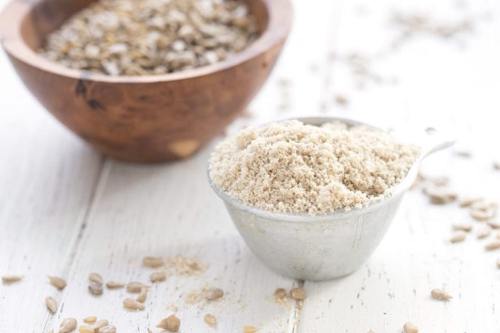
4. SUNFLOWER SEED FLOUR
It’s also easy to transform sunflower seeds into another pantry staple: flour, which makes for a protein-rich, low-carb swap for all-purpose flour. To make it, sunflower seeds are literally the only ingredient you need—and it only takes 10 minutes.
Besides the ideas shown here, you can also sprinkle sunflower seeds on your oatmeal, in baked goods, and right into your smoothies as an alternative to protein powder. When you take into the health benefits of sunflower seeds and the versatile ways to transform them, it’s clear that there’s more to them than just noshing on them as-is. (Not that raw sunflower seeds aren’t enjoyable, too!)
Sunflower seeds are an underdog no more—and they’re hereto take all your pantry cooking ideas to a new, nutritious level.
Sign Up for Our Daily Newsletter
Get all the latest in wellness, trends, food, fitness, beauty, and more delivered right to your inbox.
Got it, you've been added to our email list.
